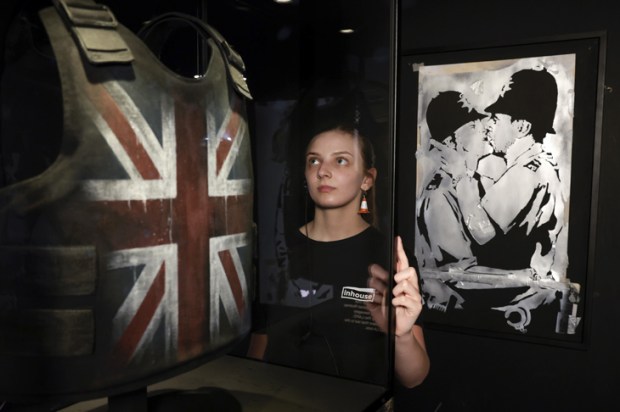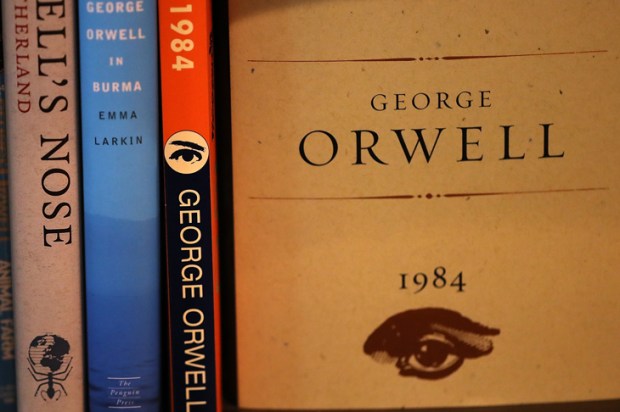Seven Days in May, a novel written in 1962 and turned into a film in 1964, concerns a planned coup d’état by the United States Joint Chiefs of Staff. They scheme to overthrow a soft-on-communism presidential administration in the wake of disarmament talks with the Soviets. The book is commentary, in real time, on events during the early stages of the Kennedy administration. John F. Kennedy, now regarded as a steadfast Cold Warrior, was considered a great deal less reliable by many of his contemporaries, including figures such as Major General Edwin Walker. This worthy, the only US general to voluntarily resign in the twentieth century in protest against a ‘pink’ government, is largely considered to be the inspiration for the plot of Seven Days in May.
Cold War context aside, the film touches on an ancient anxiety, one now largely dormant in the contemporary West. Our ancestors lived in fear of their own militaries, as the Romans could well attest. How, exactly, did we forge a compact whereby those with the guns agree to be ruled by those without the guns? Such a thing can only have come about by generations of custom, of established precedent, because laws are only as good as their prosecution can manage. Caesar said to obey the laws in all cases except in seizing power: in that case, break them. He also said he’d rather be the first man in a small Gaulish village than the second man in Rome, so perhaps things were preordained. We are lucky that General Angus Campbell does not think the same way. Does it speak to the honour of our officer corps, or their lack of imagination? Perhaps it is a bit of civilisational snobbery: coup d’états are the domain of backward places where history didn’t end, like Fiji, Zimbabwe, or France. Most people can see that once they’re in your DNA, you seem doomed to have them ever after, which is why those with power ought be very careful running around establishing new precedents.
Militaries do serve as a final kill-switch for regimes that, in the eyes of some, have strayed from their original purpose. Thus, it is important that militaries are on the team when it comes to revolutionary, or counterrevolutionary, movements. A whiff of grapeshot did for the French Revolution, ‘blowing it into space’, as Carlyle later commented. Ideas are one thing, but they perish for the lack of strength to defend them.
All of this is why, when I read about the recent Wear It Purple Day furore at the Australian Defence Force Academy, I was not surprised. For those who don’t read the ABC, cadets were instructed to either wear purple or civilian clothes, but under no circumstances to dress in uniform. Wear it Purple Day, for the blissfully uninitiated, is one of those loathsome public loyalty tests that have somehow become a routine part of our public life. On paper, it is a day of ‘awareness’ for our alphabet types, where we celebrate their diversity, or something similarly rosy, by wearing purple clothes. In practice, it helps you identify the stool pigeons you can’t trust in the office, those who might be amenable to a beer at the pub after work, and those who are patsies for whatever might win them some social clout.
Unfortunately, it helps the other side for exactly the same reason, and the other side happens to be the one with all the institutional power. Well, most of the institutional power.
Organisations don’t get more traditionalist than the military, for very obvious reasons; it’s the boy’s gang writ large, the männerbund. If I were a progressive revolutionary, I would be worried about that. You can’t have the kill-switch potentially in the hands of those you’ve identified as enemies, which includes sexually normative Anglo-Celtic males, unless explicitly stated otherwise. I would spend as much energy as possible toward winning over, or at least neutering, that institution. The place to start is obviously the officer corps, and the Wear it Purple fiasco was preceded by a decision to allow service members to dress in the uniform of the opposite sex.
Women now make up a fifth of the ADF, and the stated intent is to make it a quarter by 2024. Angus Campbell, unlike Caesar, stated his ‘number one priority… with respect to recruitment is increasing our diversity; with a focus on women and Indigenous Australians,’ and that ‘my aim is that women will make up 25 per cent of the Army’.
At least there’s no reference to Gaulish villages or breaking laws, I suppose, though that would definitely be cooler. This isn’t an argument against women, by the way, but anybody who knows a large number of women knows what they are like. I am not sure much more need be said than that, except that only a decadent society sends its women to die in place of its men.
It is like a very lame, very post-modern version of Stalin’s purges in the late 1930s, though the intention is the same: to make the military a friendly institution, one that looks favourably upon left-wing plans for hegemony, even if it uses ambitious careerists who aren’t particularly wedded to the project to do it, those once called useful idiots. And if you think kill-switches can’t happen, look to how the Wagner group behaved not long ago. Mercenaries are ten times more prolific than they were even twenty years ago, and if you think professional armies enjoy coup d’états, I have a condottiero who’d like to introduce himself.
To our Anglosphere eyes such things remain inconceivable. But we are rapidly moving into times where things that seemed inconceivable are so no longer.
The fact that some of our elites regard the military as an appropriate target for social engineering, especially as major regional conflict looms, should indicate how seriously they take the project to which they are wedded, even as it looks utterly ridiculous from the outside.
As ever, they are clever, but not wise; look at how the Red Army performed in 1941 and 1942 against a real enemy after Stalin had his way.
The Purple Day fiasco, apart from making us an international laughing stock, demonstrates that the stakes remain high, for the nation as much as those who want to forever change it.
Got something to add? Join the discussion and comment below.
Get 10 issues for just $10
Subscribe to The Spectator Australia today for the next 10 magazine issues, plus full online access, for just $10.
You might disagree with half of it, but you’ll enjoy reading all of it. Try your first month for free, then just $2 a week for the remainder of your first year.














Comments
Don't miss out
Join the conversation with other Spectator Australia readers. Subscribe to leave a comment.
SUBSCRIBEAlready a subscriber? Log in